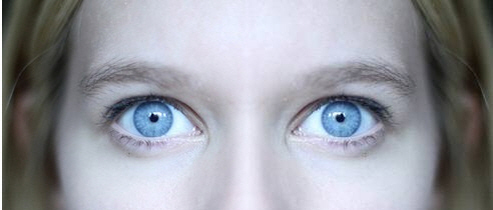

The signs and symptoms of a concussion can be difficult to sort out.

Others may not understand why they are having problems and what their problems really are, which can make them nervous and upset. Sometimes, people do not recognize or admit that they are having problems. Some of these symptoms may appear right away, while others may not be noticed for days or months after the injury, or until the person starts resuming their everyday life and more demands are placed upon them. Generally, if you feel that “something is not quite right,” or if you are feeling “foggy,” you should talk with your doctor.Ĭoncussion symptoms are often grouped into four categories, including: But for some people, symptoms of concussion can last even longer. Most people with a concussion have one or more of the symptoms listed below and recover fully within days, weeks or a few months. “I just don’t feel like myself.” Persons of All Ages Will not stop crying and cannot be consoled.Any of the signs and symptoms listed in the Danger Signs & Symptoms of a Concussion list.Take your child to the emergency department right away if the child has received a blow or jolt to the head and: Even a brief loss of consciousness should be taken seriously.ĭanger Signs - Children, Toddlers, and Infants Loss of consciousness (passed out/knocked out).Unusual behavior, increased confusion, restlessness, or agitation.Repeated vomiting or nausea, convulsions or seizures (shaking or twitching).Slurred speech, weakness, numbness, or decreased coordination.A headache that gets worse and does not go away.Call 9-1-1 right away or contact your doctor or emergency department if you have one or more of the following danger signs after a bump, blow, or jolt to the head or body: In rare cases, a dangerous collection of blood (hematoma) may form on the brain after a bump, blow, or jolt to the head or body that may squeeze the brain against the skull. Also, tell your doctor if you are taking blood thinners (anticoagulant drugs), such as Coumadin and aspirin, because they can increase the chance of complications. If you are taking medications-prescription, over-the-counter medicines, or “natural remedies”-or if you drink alcohol or take illicit drugs, tell your doctor. Be sure to follow all of your doctor’s instructions carefully. Your doctor will send you home with important instructions to follow. Even if the concussion doesn’t show up on these tests, you may still have a concussion. These tests can help your doctor identify the effects of a concussion. Other tests, known as “neuropsychological” or “neurocognitive” tests, assess your learning and memory skills, your ability to pay attention or concentrate, and how quickly you can think and solve problems.

Your doctor may do a scan of your brain (such as a CT scan) or other tests. While most are seen in an emergency department or a doctor’s office, some people must stay in the hospital overnight. People with a concussion need to be seen by a doctor.
#Concussion pupil test how to
This article explains what can happen after a concussion, how to get better, and where to go for more information and help when needed. Also, persons who have had a concussion in the past may find that it takes longer to recover from their current injury. In general, recovery is slower in older persons. Some symptoms can last for days, weeks, or longer. Most people with mild injuries recover fully, but it can take time. People may look fine even though they’re acting or feeling differently.īecause all brain injuries are different, so is concussion recovery. Early on, problems may be missed by patients, family members, and doctors. Sometimes the injury makes it hard for people to recognize or to admit that they are having problems. Some symptoms may appear right away, while others may not show up for days or weeks after the concussion. Even so, the effects of a concussion can be serious.īecause the brain is very complex, every brain injury is different. Medical providers may describe a concussion as a “mild” brain injury because concussions are usually not life-threatening. This sudden movement can cause the brain to bounce around or twist in the skull, creating chemical changes in the brain and sometimes stretching and damaging brain cells. A concussion is a type of traumatic brain injury-or TBI-caused by a bump, blow, or jolt to the head or by a hit to the body that causes the head and brain to move rapidly back and forth.


 0 kommentar(er)
0 kommentar(er)
